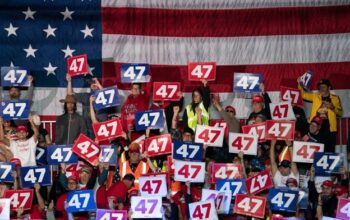We are going back to the Jimmie Carter years. High inflation. Stagflation, job losses and a dead economy.
“Consumer prices rose 5.4% for the year ending September, according to a report by the Department of Labor released Wednesday, the highest pace of inflation since 2008.
Forecasters had expected a 5.3% increase.
“While some of the so-called transitory factors like used car prices, airfares, and apparel continue to ease after sharp run-ups in earlier months, inflation is broadening out,” said Greg McBride, Bankrate senior analyst. “Food and shelter increases together contributed more than half of the seasonally adjusted increase in the CPI. With home prices soaring and rents surging, this may just be the tip of the iceberg.”
In some places the inflation rate is north of 8%–California is a disaster area. High unemployment, lots of job shortages and government mandating people be fired—like nurses, cops and fire fighters—when we have a massive shortage of those folks. Their crime? Thinking that they owned their body, not the government.
Consumer prices rise 5.4% on year, highest inflation in 13 years

by Zachary Halaschak, Washington Examiner, 10/13/21
Consumer prices rose 5.4% for the year ending September, according to a report by the Department of Labor released Wednesday, the highest pace of inflation since 2008.
Forecasters had expected a 5.3% increase.
“While some of the so-called transitory factors like used car prices, airfares, and apparel continue to ease after sharp run-ups in earlier months, inflation is broadening out,” said Greg McBride, Bankrate senior analyst. “Food and shelter increases together contributed more than half of the seasonally adjusted increase in the CPI. With home prices soaring and rents surging, this may just be the tip of the iceberg.”
The news comes as inflation fears percolate among some economists who worry that the rising prices are not just transitory, as the Federal Reserve contends.
The Fed has maintained interest rates at near-zero since the start of the pandemic, a stance that has received plaudits from some economists but has caused others to fear that the central bank may be contributing to inflationary pressure.
The most recent jobs report was a major letdown. The economy added just 194,000 new jobs in September as the delta variant curbed business — far short of consensus forecasts of 473,000 new jobs. The unemployment rate is now at 4.8%, well above what it was prior to the health crisis.



